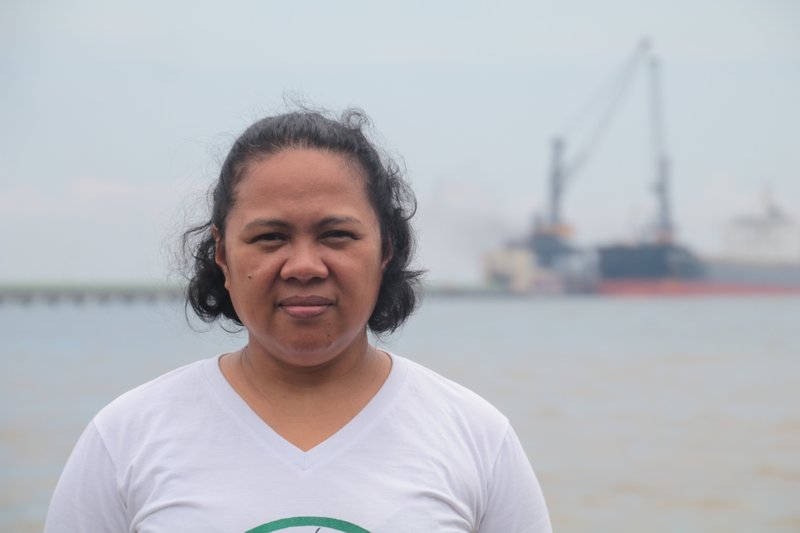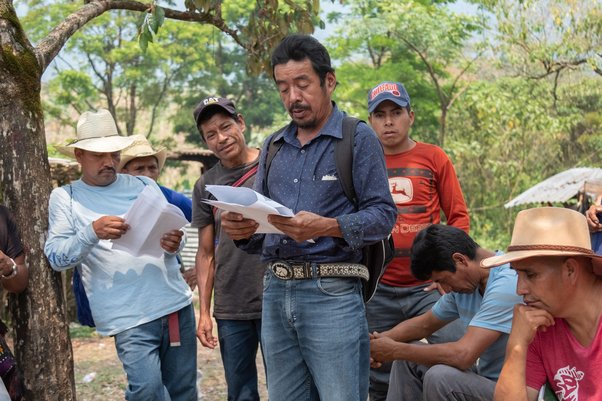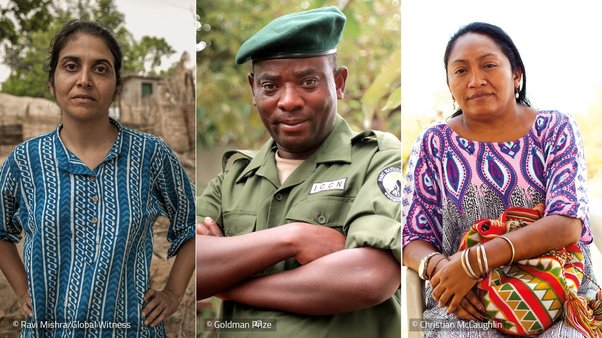As I write, the Philippines Island of Luzon, my home, braces for another super-typhoon - the third storm to hit in less than a month. Newsreaders warn of wind speeds at around 205 km per hour. With it, flash floods and dangerous landslides are likely. Devastation caused by extreme, climate-driven weather events have become the norm.
It is almost 13 years ago to the day that the same communities survived typhoon Ondoy, one of the worst in decades to hit the country. A month’s worth of rain fell in just 6 hours leaving 80% of Manila devastated, and more than 700 people and countless livestock dead. My family was one of the thousands forced to seek safety on the rooftop of our two-story house. Floodwaters, almost 18 meters high, swept by bodies of people and animals. It was like a horror movie, except this was real life: our lives.

I sometimes feel the floodwater took our dignity as well as our belongings. In the aftermath, my family was made homeless, and everything was lost. They were left with the wet clothes on their backs, with no clean water and no electricity. They relied on relief efforts and the kindness of friends, but our suffering did not end with Ondoy. The floods come almost every year now, each time just as devastating. In 2013, super-typhoon Yolanda claimed over 6,000 lives and displaced millions. Fuelled by climate change, the outcome is a cycle of never-ending devastation, recovery, and rebuilding. I ask myself; how can we secure our lives and the future of our children when faced with this global crisis?
Action is the answer.
My organisation, the Nuclear and Coal Free Bataan Movement (NCFBM), joined Greenpeace and several other environment and climate organisations to file a petition to demand that the Philippines’ Commission on Human Rights (CHR) launch an inquiry into the role of global corporations – and some of the world’s largest carbon emitters - in contributing to human rights violations resulting from climate change. The climate crisis is couched in historical injustice. Whilst this small island nation contributes less than 1% of the world’s global carbon emissions, it is one of the most vulnerable to the effects of climate change. I believe that we should make fossil fuel corporations – the likes of Chevron, Exxon-Mobil, Shell, BP, Total and ConocoPhilips - accountable for their disregard for human rights including our right to a healthy environment. Our hope was that the inquiry would give us space to tell our stories and will compel action from governments and corporations to prevent the climate crisis devastating vulnerable communities. We are best placed to talk about the effects of development projects on our lives, and through this inquiry can play a greater role in promoting new models that protect our rights and the welfare of the environment.
Earlier this year, seven years since we have filed our climate petition, the CHR published its findings on climate change and human rights. It concluded that the biggest carbon polluters should be held liable for their contributions to climate change within the Philippines. Corporations and their government supporters have held knowledge about the impacts of their operations on our climate yet have continued to put the world at risk. In fact, many have gone further actively denying harms and obstructing the transition away from a fossil fuel economy. By linking climate and human rights, this resolution lays the groundwork for future legal action to ensure that companies are held responsible for harms caused as a result of climate change. Its role is to test the boundaries and create new paths, to promote soft laws into becoming new legal paths for remedy and prevention. The creation of national laws or policies to ensure legal remedy for climate-related human rights violations should be a priority action now.
Countries that have reaped the benefits of industrialisation, should bear a larger share in providing solutions to the problems they have created. But, the Philippines government must not hide behind the historical injustice of the climate crisis, whilst continuing its investment in new or existing fossil fuel projects.
Speaking at COP26 Antonio Guterres, Secretary General of the United Nations said: “emerging economies, too, must go the extra mile, as their contribution is essential for the effective reduction of emissions”. Over the last decade, my home has become a hub for coal-fired power plants with more expansions underway. Whilst the government portrays them as beacons of development, their construction is at the heart of environmental degradation and the displacement of local communities; in addition to the cutting of old-growth trees and toxic waste pollution linked to sickness. Our experience has led to collective organisation, with a stronger focus on the intersection of environmental and human rights, including our understanding of the gendered impacts of climate change. Our experience and knowledge shaped my testimony at the Commission’s inquiry on human rights and climate change.
Over the last decade, 270 land and environmental defenders were killed in the Philippines, with many more subjected to intimidation, threats, and criminalisation. Increasingly governments are turning to laws to restrict protest, to stop activism and to prevent communities being able to speak to the horrors they face as a result of climate change. Known as red-tagging, this underhand tactic is used to smear the work of environmental defenders by associating them with communist insurgents – currently being used to silence the growing discontent amongst affected communities.
We know first-hand that speaking out can be dangerous. In 2016, my friend and fellow activist, Gloria Capitan was murdered after leading her local community to protest a coal storage unit. She was approached at her home by two men and shot in the neck in front of her grandchildren. To date, nobody has been prosecuted for her murder. In this way, Filipino land and environmental defenders are double targets; we feel the impacts of the climate crisis and are attacked when we try to stand up for the environment.
As world leaders gather ahead of COP27 in Egypt, I urge global governments to listen to the voices of the climate vulnerable; to reject the status quo and turn away from industrial models that view nature as an object to be exploited, and which expects communities that contributed the least to the climate crisis to bear the burden without benefit or say. This includes the newly inaugurated President Marcos, who should ensure an economic recovery that phases out fossil fuels and initiates the swift transition to renewable sources of energy. The Philippines has fallen short of its climate commitments, despite the thousands of Filipinos who suffer as a result. Therefore, Marcos’ government should uphold the Philippines international pledges and enforce climate legislation by bringing human rights to the forefront of business practises and codifying the expected conduct of corporations. Climate action should not be at the caprice of politicians, but instead should be at the forefront of their agendas.
To the global community I say: financial support for climate-vulnerable countries is essential. It is an environmental issue and a human rights issue. Collective action is our opportunity to deconstruct corporate systems that are the root cause of climate injustice, and which prioritize profit over planet and people.
I do not want to just be a statistic of climate change. So in the meantime, we will continue to build a movement within our community to advance the rights our rights and to protect the planet – for us and our children.


